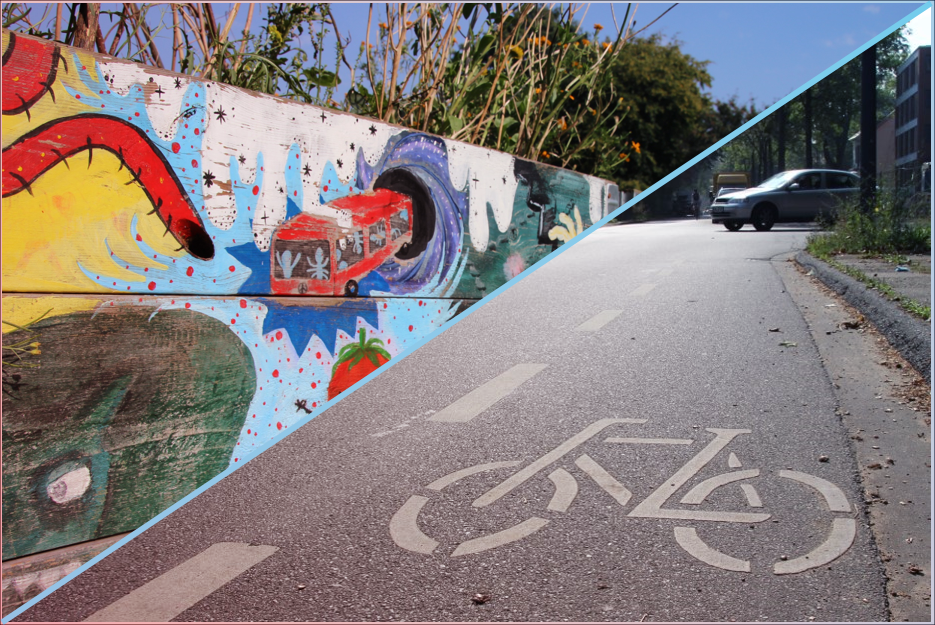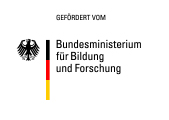Climate-friendly Lokstedt
What kind of activities link climate mitigation to urban quality of life? How do we use and (re)shape public spaces for that? And how can urban mobility look like in order to increase climate mitigation and improve the mobility of local residents beyond the car?
The transdisciplinary project Climate-friendly Lokstedt – self-sustaining local transformation processes through real-world laboratories investigates those questions within the city district of Lokstedt in Hamburg.

Funded by the BMBF (Ministry for Education and Research), it is a two-year follow-up project of Climate Smart City Hamburg | Urban Transformational Laboratories in Lokstedt (duration 01.09.2020 – 31.08.2022). It is realised in the programme Sustainable Transformation of Urban Areas and roots in insights and results from the previous three-year project. The focus of the follow-up project entails a stronger focus on temporal implementation of measures, interventions and impulses on how to shape the pathways to a more resilient city of the future. It is conducted by a broad consortium of academic and municipal partners and civil society:
- Universität Hamburg – Center for Sustainable Society Research, the Eimsbüttel District Office (Bezirksamt Eimsbüttel) and the Community Center of Lokstedt (Bürgerhaus Lokstedt e.V.) function as core consortium, complemented by project partners from diverse backgrounds:
- Coordination Center for Climate Issues of the Environmental Agency (Leitstelle Klima), Staff Unit for Citizen Participation (Stadtwerkstatt Hamburg), Creative Space for Technical Innovations (CSTI), Hamburg waste management (Stadtreinigung Hamburg), Cradle to Cradle e.V., General German Bicycle Club (ADFC), the Association for Common Good Economy (Gemeinwohlökonomie e.V.), and the Union of North German Housing Associations (Verband norddeutscher Wohnungsunternehmen).
Prof. Dr. Anita Engels directs the project and is responsible for the sub-project "Climate Mitigation & District Work in Public Spaces" with the aim to link climate action to urban quality of life. A special focus is on temporal changes in public spaces. Together with local initiatives and engaged citizens, different sustainable ideas will be implemented and evaluated. In general, the project addresses the following questions: How does local civic engagement in coalition with a supporting district office strengthen mitigation processes in the respective neighbourhoods? To what extent could multipliers bridge the gap between formal processes and everyday engagement?
Prof. Dr. Katharina Manderscheid directs the sub-project "Car-free Mobility". In real-life laboratories the following questions will be addressed: What are the potentials and obstacles to change everyday transport practices? How do urban spaces and mobility change in a less car centred system? What effects does not owning a car have on the flexible organization of everyday life? Alternatives to car dependencies will be discussed based on experiences made within changing urban infrastructures.
Previous project
Insights and a summary of findings of the previous project Climate Smart City Hamburg | Lokstedt are collected within the brochure “Klimaschutz im Quartier – Neue Ideen aus Lokstedt”, which you can find here [pdf, in German only]. For more information on the previous project, you can have a look at the project website here.



